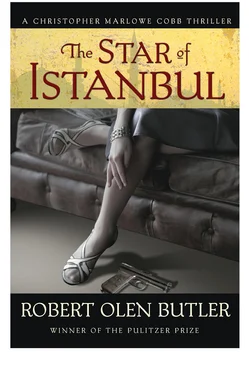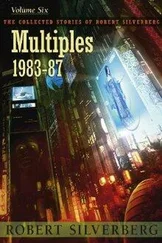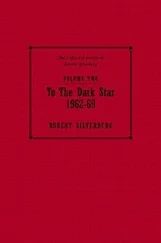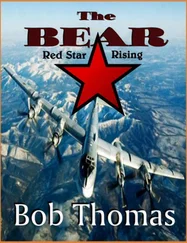I realized I had to follow her. She certainly didn’t think Brauer was putting the mash on her and this wasn’t about proving her independence. She had somewhere to go.
I wanted to sprint away back to my own taxi, but that could draw the attention of the bobby, and so I walked briskly instead.
I glanced into her tonneau and Selene was giving her driver instructions.
I pushed on more quickly.
My driver was alert. He’d turned his Unic around to face this way, so he could watch for me, and he started up now, even as another taxi cut me off, turning from New Street into St. Martin’s.
I heard Brauer cry, “Taxi!”
I figured he was going to follow her as well.
I glanced back and I caught a glimpse of her old Unic puttering off as Brauer’s taxi, a British Napier Landaulet, slid into its place. The Napier’s cloth rear top was down, but Bauer opened the door into the forward hard cabin and he began to climb in.
I took the last few strides to my Unic and leaped into the back. I grabbed the speaking tube and told my man to follow the taxi in front of us, which was following the taxi I was primarily interested in, and he said “Yessir” as if he actually knew what I wanted, and we were all off.
We went south on St. Martin’s and then swung east into the Strand and almost at once were passing the massive, rusticated stone, Edwardian-Baroque Cecil Hotel. The Savoy was next door. Maybe I was wrong about Selene.
But the driver hailed me on the speaking tube and said, “The taxi of interest has turned in. Would tha like me to stop?”
“What’s the taxi just ahead doing?”
“He has gone by but is stopping now.”
“Turn in,” I said, “and park like you did earlier, facing the Strand.”
And we did. I leaned forward to watch for the ’08 Unic to emerge from the covered front court. It came out almost at once. Too quick to have dropped Selene and gotten a new fare. She played this smart but assumed Brauer would have gone off at once when he saw her turn in at her hotel. And sure enough, as the taxi puttered past, I caught a brief glimpse of her turban hat and veil in silhouette.
I told my man to follow. Selene’s taxi turned right, onto the Strand, and I told him to pause long enough to see if the other taxi was going to follow as well.
Brauer did. He was as suspicious as I was, and he was going to check this out.
We three wagon-trained along the Strand, passing the neoclassical facade of Somerset House, which was full of the quotidian, no-spies-necessary government — taxes and probate and the records of birth and death and marriage — and then, in exactly the same architectural style, the Strand campus of Brauer’s own King’s College drifted past.
I settled back in my seat and stopped watching the city for now. We trekked on into Fleet Street. I wondered how far east Selene would go.
I turned my thoughts back to Squarebeard. A voice heard briefly or distantly or long ago sticks in your head, it seemed to me, not just from the sound of it but from the circumstance, the location, the face of the speaker when you hear it. I tried one last time to recognize Squarebeard’s voice, but since I’d seen his face, none of this was coming together. He used his voice well. My hands flexed at his softly sneaky masher-pitch about late-harvest grapes. That voice was familiar but perhaps because it sounded similar to somebody from my own past. Probably some actor I’d met along the circuit with my mother. Someone, after all this time, I would never be able to identify. Nor did I need to.
And I thought of Selene’s mission. To spy for the Germans, apparently. In Istanbul. On the Turks? They were Germany’s ally, but I only had to look at my own mission — sneaking into Britain’s war — to find that possibility plausible. In the old Chinese military axiom that you kept your friends close and your enemies closer, you had two challenges. Keeping the enemy closer was the obvious one. But you still might have to work hard and secretly to keep those friends close. The military best interests of a Turk-invoked international jihad would not necessarily fit with the Germans’ best interests.
As of two weeks ago the Turks had begun fighting on their own Eastern Front. The Brits and French had landed on the Gallipoli peninsula with the intention of taking Istanbul and opening a supply route into the Black Sea for the Russians. Hell, everyone figured the Triple Entente had already agreed to let Constantinople turn into Tsargrad. This was a particularly important time for the Huns to get the inside scoop on what their ally was planning to do and how.
But there was another possibility. Squarebeard mentioned an approach to a pasha, a member of the Turkish ruling elite. Maybe Selene’s real work would be for the Turks themselves. Perhaps the Germans were providing Selene for an Ottoman mission. What would the Turks want that they’d need a female Greek-American film star to do the job? For that matter, of what particular use would such a woman be to the Germans? What covert skills did she possess to make her uniquely useful?
Only one answer came to mind. But my feelings were too raw about Selene Bourgani to go any further with that.
So I closed the throttle and let my thoughts sputter out. I found myself looking sightlessly at the passing street. I turned my face to the forward windows of the taxi, and looming before us was the massively becolumned Great West Door of the Christopher Wrenassainced St. Paul’s Cathedral.
We veered to the right and around the cathedral and still we followed Brauer and Selene. Down Cannon Street we went and past its eponymous train station and soon we were approaching the castle within a castle within a castle of the Tower of London, the spaced, rising stacks of ancient stone seeming to fill the dark of the night ahead. This too we circled, and immediately we were skirting the northern edge of the St. Katharine Docks, the ships invisible behind the high brick facades of the warehouses joined in a long unbroken row.
Then we angled up onto St. George Street and the only hint of the vast London Docks lying beyond the immediate rows of commercial buildings was the proliferation among the storefronts of ship chandlers, with their windows hung in deck lights and signal lanterns and with their barrels of tar and pitch and rosin huddling dimly inside. And, as well, the clothiers’ windows were showing peacoats and slickers instead of sack suits and frocks.
And now we turned off St. George into a street of brick warehouses on both sides, which loomed six stories above us in canyon cliff face, and the darkness of the night deepened around us. New Gravel Lane. This was on the way to nowhere. And when we got free of the warehouses and into a run of sack makers and rope merchants and pubs, I expected what soon came: my driver hailed me over the speaking tube and said, “They will be stopping up ahead.”
I leaned forward to the front tonneau window, and I could see before us Brauer’s taxi pulling abruptly to the curb.
“Go on,” I told my driver.
We passed Brauer and fifty yards farther along we approached Selene’s Unic, which had stopped before a pub on a corner.
“Take the right turn,” I said to my driver.
He did. Onto Coleman Street. He knew to go slow. I let him roll twenty or so yards farther and I told him to pull over.
I removed the arm sling, which had been hanging loose for the ride, and put it on the seat. I considered the cane but left it behind as well. I stripped off my jacket and plucked off my hat and I jumped out of the taxi on the driver’s side and stepped forward to him.
He looked at me. Ready to do whatever I needed. “You’re a good man,” I said. “I’d take you to battle with me any day of the week.”
Читать дальше












